Lipicard 200mg Capsules
$95.00 – $245.00
| Pack Size | Price | Price / Unit | Quantity | |
|---|---|---|---|---|
| 100 Capsules | $95.00 | $0.95/ unit | ||
| 200 Capsules | $180.00 | $0.90/ unit | ||
| 300 Capsules | $245.00 | $0.82/ unit |
Want to order in bulk / B2B price ? | Send Inquiry |


| SKU | 11328 |
| Manufacturer | USV Private Ltd |
| Categories | High Cholesterol |
| Delivery Time | 10 - 14 Working Days |
| Strength | 200mg |
Introduction to Lipicard 200mg Capsules
Lipicard 200mg Capsules are a prescription medication used primarily in the management of abnormal cholesterol and triglyceride levels in the blood. It contains Fenofibrate as its active ingredient, which is widely used to support cardiovascular health by regulating lipid profiles.
This medicine is typically prescribed when lifestyle changes alone are not sufficient to control cholesterol levels. Lipicard 200mg is often recommended to patients who are at risk of cardiovascular diseases due to high cholesterol or triglycerides. When used along with a healthy diet, exercise, and weight control, it can significantly improve overall heart health outcomes.
It is especially beneficial for individuals with mixed dyslipidemia or severe hypertriglyceridemia. Lipicard 200mg is manufactured by USV Private Ltd. USV Private Limited is an Indian multinational pharmaceutical and biotechnology company in Mumbai.
Uses of Lipicard 200mg Capsules
Lipicard 200mg, containing Fenofibrate, is primarily used to manage and improve lipid profiles in the blood. Here are the main uses:
- Reduction of High Triglyceride Levels (Hypertriglyceridemia)
- Management of High Cholesterol (Hypercholesterolemia)
- Treatment of Mixed Dyslipidemia
- Cardiovascular Risk Reduction
How Does Lipicard 200mg Works?
Lipicard 200mg works by activating certain receptors in the body known as peroxisome proliferator-activated receptors (PPARs), which play a key role in regulating lipid metabolism. Through this action, the active ingredient Fenofibrate increases the breakdown and removal of triglycerides from the blood, reduces the production of very low-density lipoprotein (VLDL), and increases levels of high-density lipoprotein (HDL or “good” cholesterol). This combined effect helps in improving overall lipid balance and reducing the risk of cardiovascular disease.
Side Effects of Lipicard 200
Common Side Effects
- Stomach discomfort or indigestion
- Nausea or vomiting
- Muscle pain or weakness
- Headache
- Dizziness
- Elevated liver enzymes (seen in blood tests)
- Increased sensitivity to sunlight
Serious Side Effects
- Muscle Damage
- Liver Problems
- Pancreatitis
- Severe Allergic Reactions
- Kidney Dysfunction
Dosage of Lipicard 200
How To Manage Side Effects?
- Follow Dosage Instructions
- Report Side Effects
- Monitor Muscle Pain or Weakness
- Blood Sugar Monitoring
- Maintain a Healthy Lifestyle
- Stay Hydrated
- Communicate with Your Healthcare Provider
- Medication Interactions
Warnings & Precautions
1. Use Only Under Medical Supervision
- Lipicard should be taken only as prescribed by a qualified healthcare provider. Regular medical check-ups and lab tests are essential during treatment to monitor liver, kidney, and muscle health.
2. Avoid in Gallbladder Disease
- Lipicard may increase the risk of gallstones or gallbladder inflammation, so it is not advised in patients with a history of gallbladder disorders.
3. Regular Monitoring Required
- Liver enzymes, kidney function, and lipid levels should be routinely monitored during therapy to detect any abnormalities early.
4. Use with Caution in Elderly Patients
- Dose adjustments and closer monitoring may be required in elderly individuals, who are more sensitive to the effects of the drug.
5. Pregnancy and Breastfeeding
- Lipicard is not recommended during pregnancy or breastfeeding, as its safety in these conditions is not well established.
6. Avoid Alcohol Consumption
- Limit or avoid alcohol while on Lipicard, as it can increase the risk of liver damage and negatively affect lipid control.
Storage
- Store at Room Temperature
- Protect from Moisture
- Keep Away from Direct Sunlight and Heat
- Store in Original Packaging
- Keep Out of Reach of Children and Pets
- Do Not Freeze
- Check Expiry Date Regularly
Frequently Asked Questions
1. What Tests Are Needed While Using Lipicard 200mg?
Ans. While taking Lipicard , your doctor may order regular blood tests to monitor liver function, kidney function, and lipid levels, and to check for any signs of muscle damage, especially if you’re also on other medications.
2. Can I Stop Taking Lipicard 200mg If My Cholesterol Is Normal?
Ans. You should not stop Lipicard without consulting your doctor. Even if your cholesterol levels improve, discontinuing the medication abruptly may cause them to rise again, increasing the risk of heart disease.
3. Can I Take Lipicard 200mg Along With Statins?
Ans. In some cases, Lipicard may be prescribed along with statins, but this should only be done under strict medical supervision due to the increased risk of muscle-related side effects like myopathy or rhabdomyolysis.
4. How Do I Take Lipicard 200mg Capsules?
Ans. Lipicard Capsules should be taken once daily, usually with food to improve absorption. Swallow the capsule whole with a full glass of water, and try to take it at the same time each day to maintain consistent levels in your body.
| Pack Size | 100 Capsules, 200 Capsules, 300 Capsules |
|---|---|
| Price/Unit | $0.85/unit, $0.90/unit, $0.95/unit |
Be the first to review “Lipicard 200mg Capsules” Cancel reply
Related Products
No related Products Found

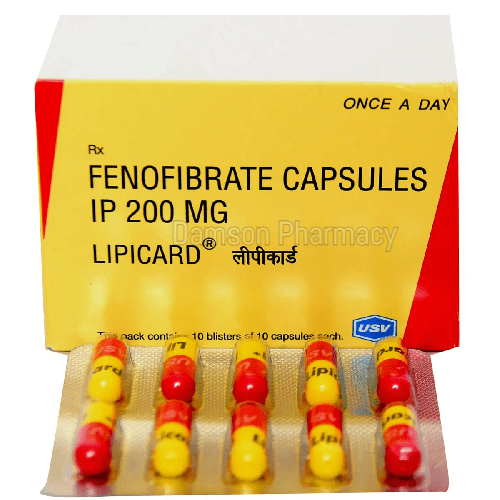
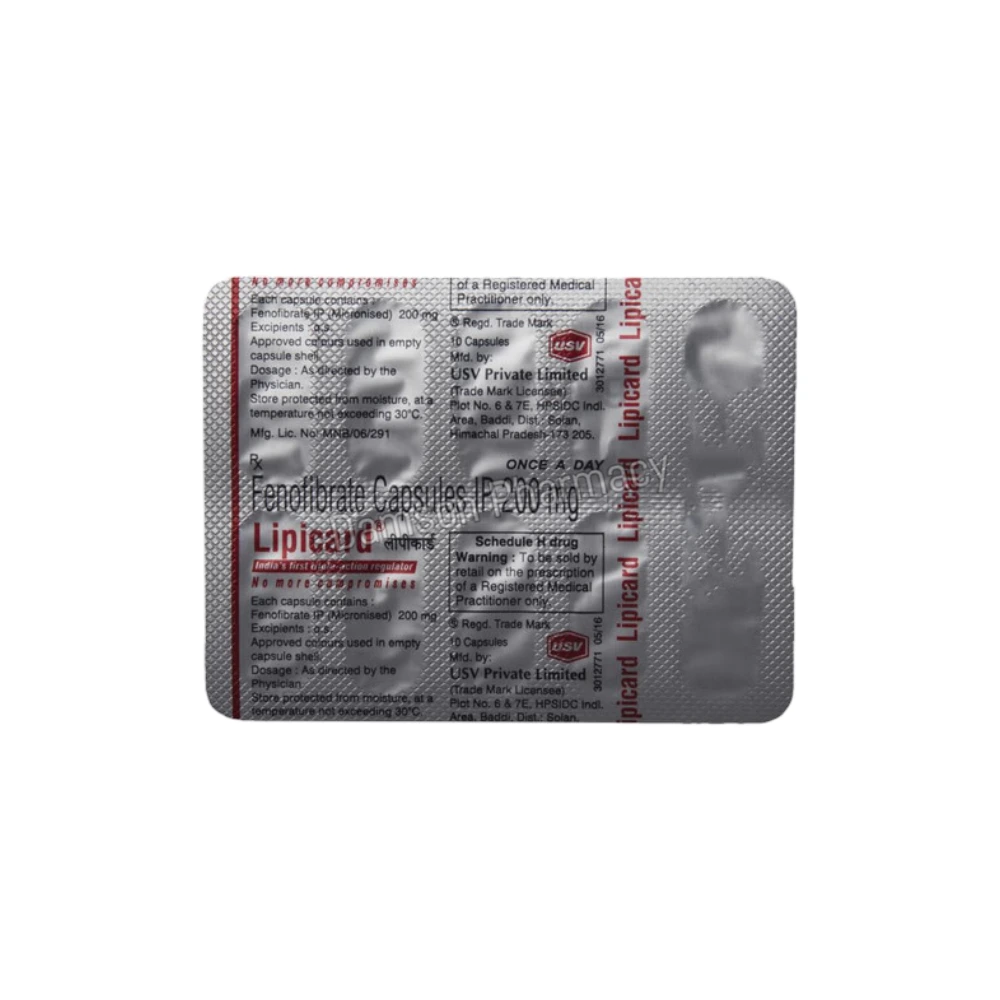
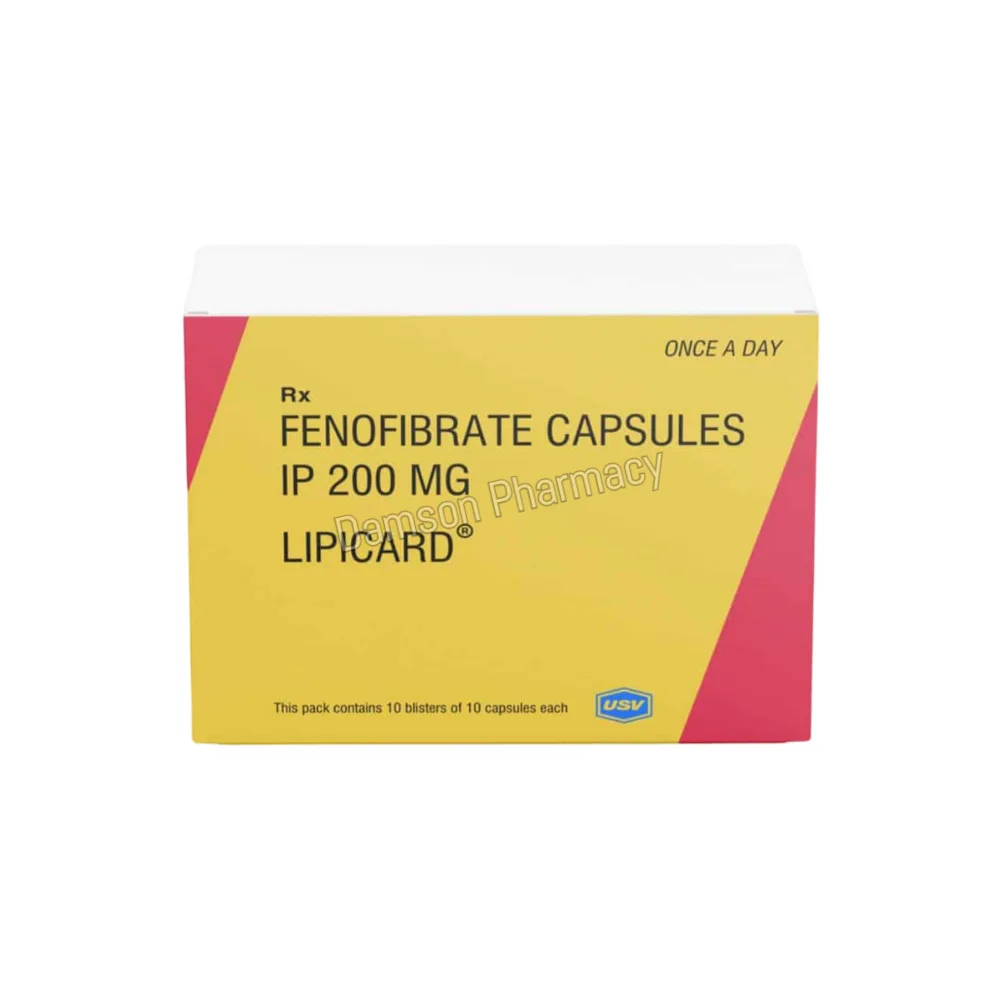
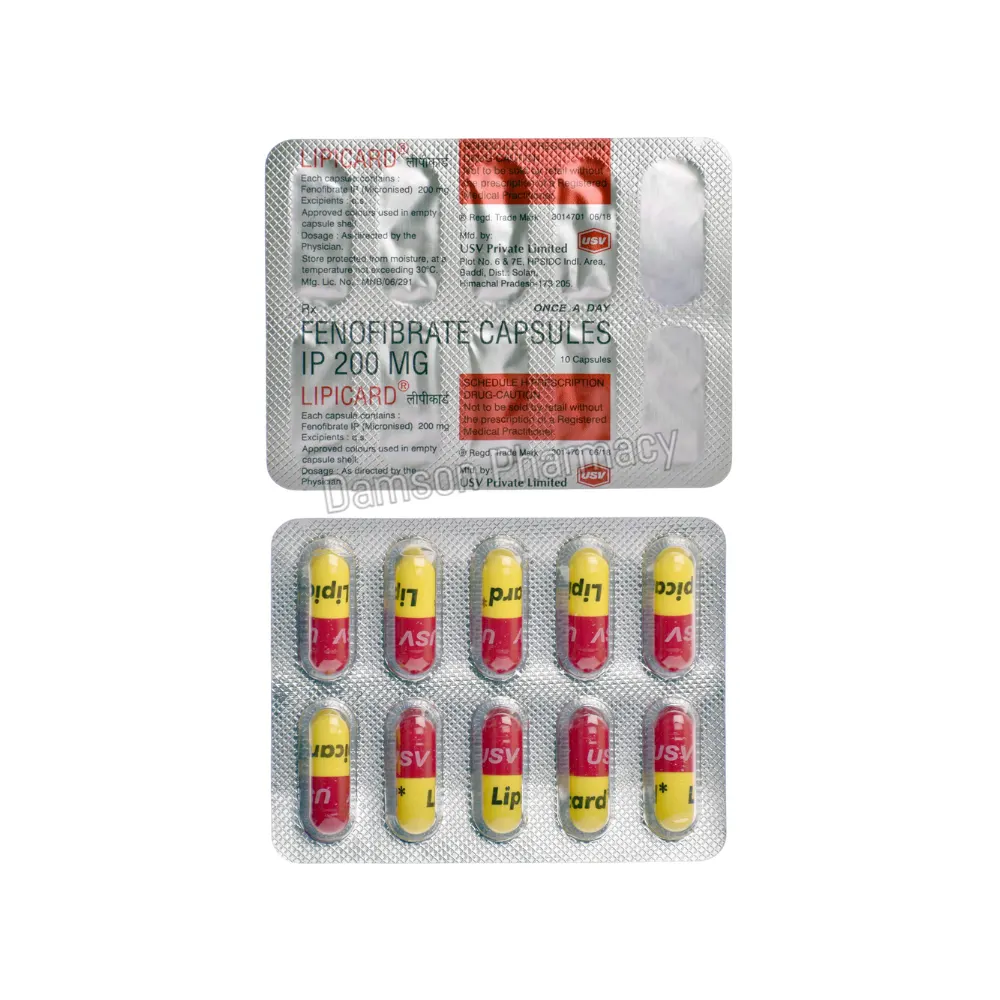
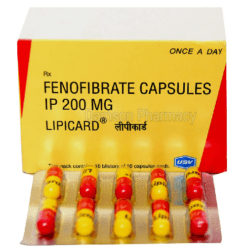
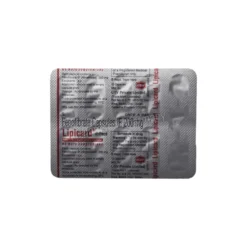
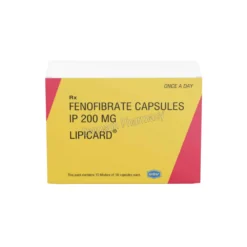
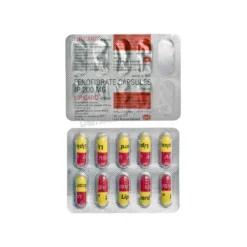
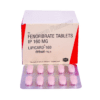
Reviews
There are no reviews yet.